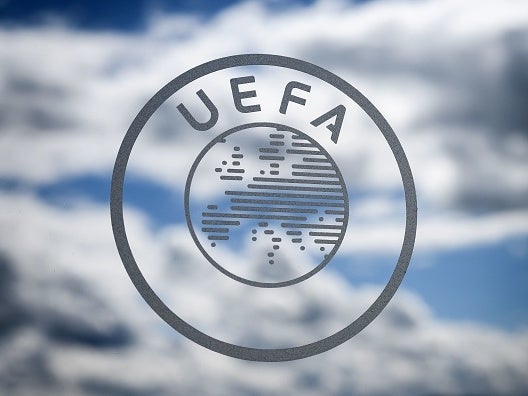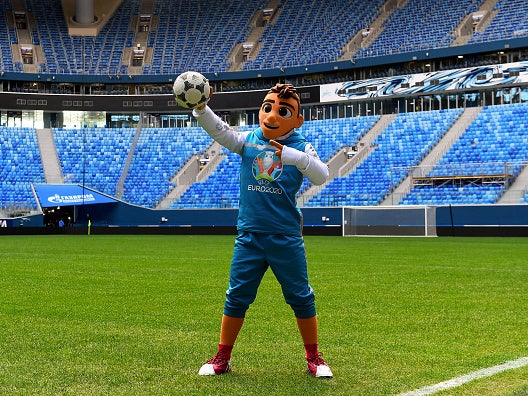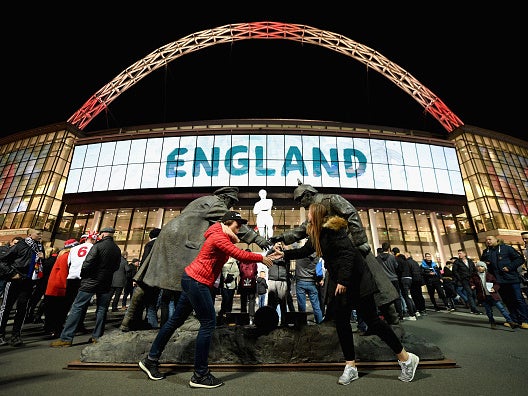Supporters’ group urges Uefa to cut Euro 2020 ticket prices and revise allocation to reward travelling fans
Football Supporters Europe says the governing body's ticketing plan has ‘numerous negatives’

Your support helps us to tell the story
From reproductive rights to climate change to Big Tech, The Independent is on the ground when the story is developing. Whether it's investigating the financials of Elon Musk's pro-Trump PAC or producing our latest documentary, 'The A Word', which shines a light on the American women fighting for reproductive rights, we know how important it is to parse out the facts from the messaging.
At such a critical moment in US history, we need reporters on the ground. Your donation allows us to keep sending journalists to speak to both sides of the story.
The Independent is trusted by Americans across the entire political spectrum. And unlike many other quality news outlets, we choose not to lock Americans out of our reporting and analysis with paywalls. We believe quality journalism should be available to everyone, paid for by those who can afford it.
Your support makes all the difference.Football Supporters Europe has urged UEFA to reconsider its ticketing plans for Euro 2020, saying tickets are still too expensive and not enough have been allocated to the right fans.
An independent organisation with member groups in 48 countries, FSE has praised European football’s governing body for announcing this week that it will make a record 3 million tickets for the tournament available for sale – with 2.5 million of those, or 82 per cent, reserved for fans of competing teams and the general public.
It has also welcomed the decision to revamp the ticket resale platform, improve the waiting-list system and reduce prices for disabled fans.
But, in a statement issued on Wednesday, FSE said the ticketing plan’s “negatives are just as numerous” as its positives.
For example, UEFA’s decision to divide the tournament’s 12 different venues into two “price clusters” based on average incomes “should be applauded” but Russia should not be in cluster A with Europe’s richest nations.
Pointing out that its economy is weaker than those of the other nations in that cluster, FSE says Russia also performs worse, “on a whole host of indicators”, than Hungary and Romania, which are in cluster B.
But FSE is also worried about the number of tickets that will be made available to fans of teams actually competing at some venues, with far too many going to local fans and sponsors.
“Just as problematic is the low allocation given to national associations and fans for certain games – in some cases, the allocation is as low as 17 per cent of the overall stadium capacity,” it said.
“While this represents a slight improvement on Euro 2016, it still falls short of our expectations. We invite UEFA to reconsider the allocation split for these games and, depending on demand, raise them accordingly.”

The 17 per cent figure, 8.5 per cent for each team, refers to St Petersburg, which is hosting three group B games and a quarter-final, but the allocation is not much bigger than that for several of the last-16 games.
Furthermore, FSE believes the lack of a “fourth, cheaper ticket category” for games up to the semi-finals “is also a concern”, pointing out the cheapest ticket in France three years ago cost 25 euros (£22).
“The budget of fans has not doubled in four years, so it is disappointing to learn UEFA has decided to effectively double prices for those who can only afford to purchase tickets from the bottom category,” said FSE fans’ embassy division director Michael Gabriel.

There is a fourth category for the semi-finals and final, which are being staged at Wembley, with the cheapest tickets costing 75 and 85 euros (£66 and £75), respectively, but FSE believes the “overall pricing structure remains far too expensive”. The dearest tickets for the final will cost 945 euros (£834).
And with memories of last summer’s World Cup still fresh, and the ongoing controversies related to the decision to stage the Europa League Final in Azerbaijan’s Baku, which is hosting four Euro 2020 games, FSE is urging UEFA to announce “visa-free entrance or a fast-track visa application process” as soon as possible.
Wembley is hosting seven games in total next summer, while Dublin’s Aviva Stadium and Hampden Park in Glasgow are staging four each.
PA
Join our commenting forum
Join thought-provoking conversations, follow other Independent readers and see their replies
Comments